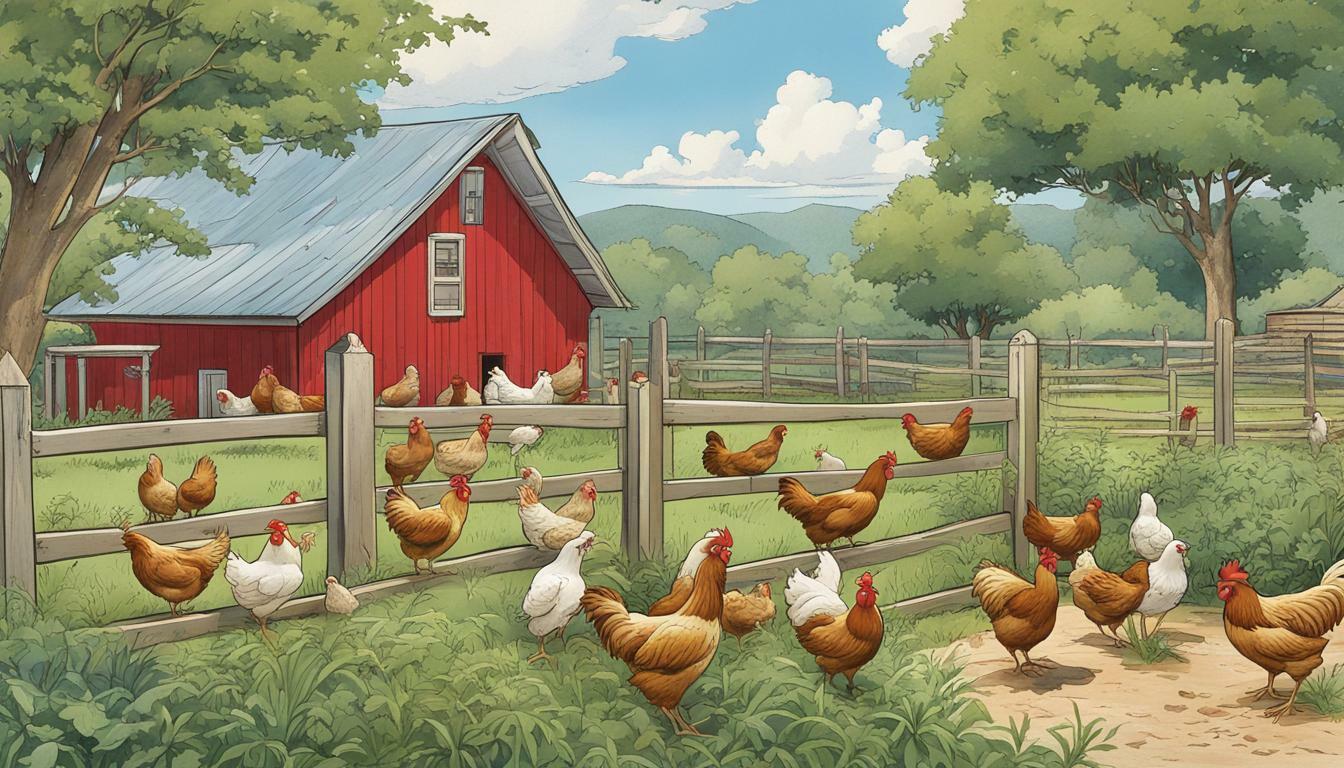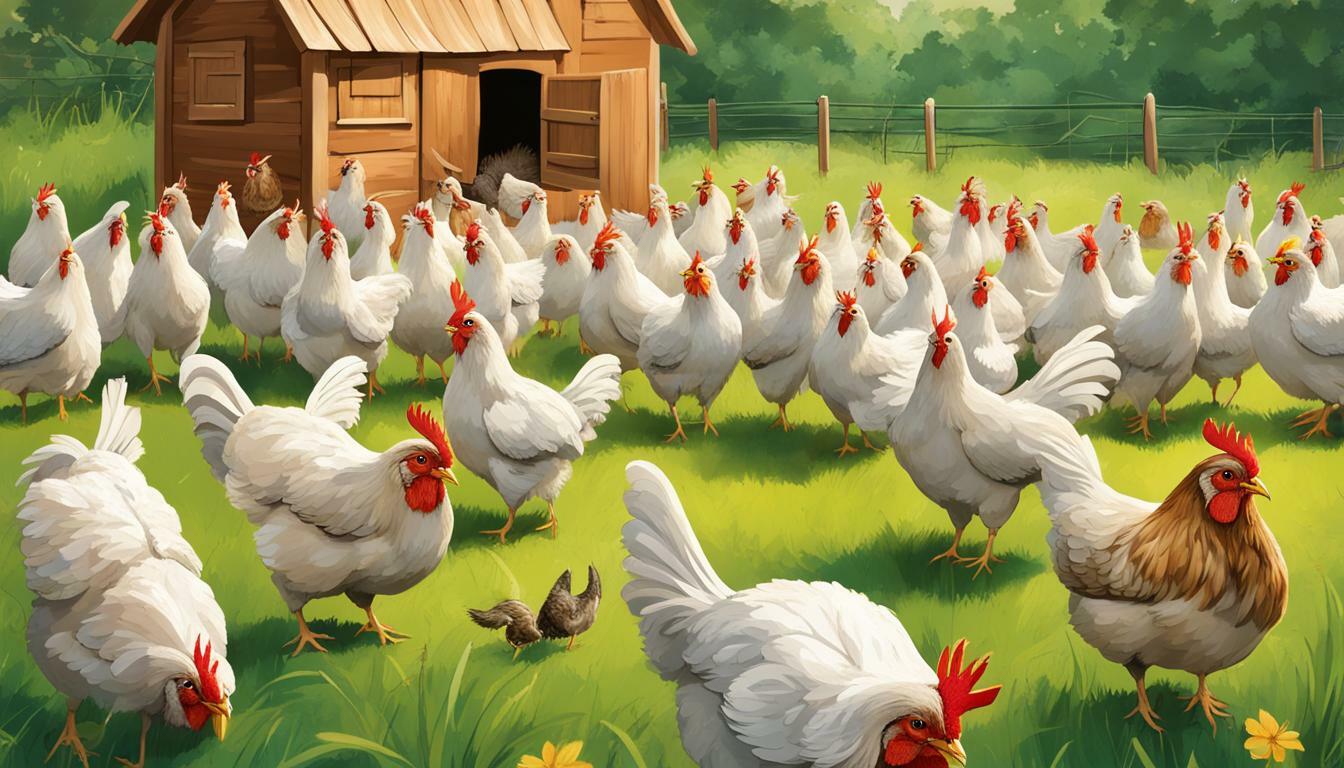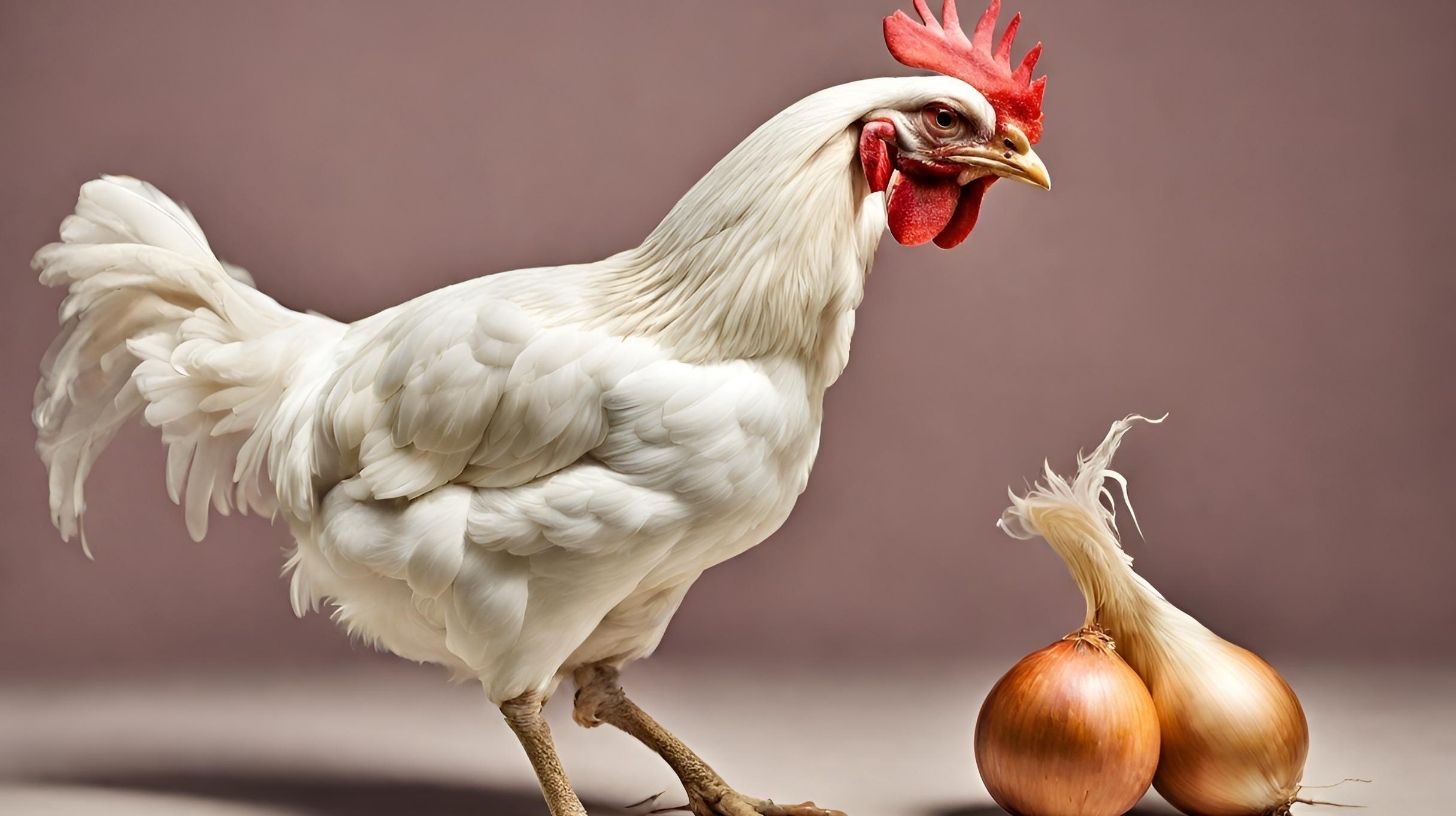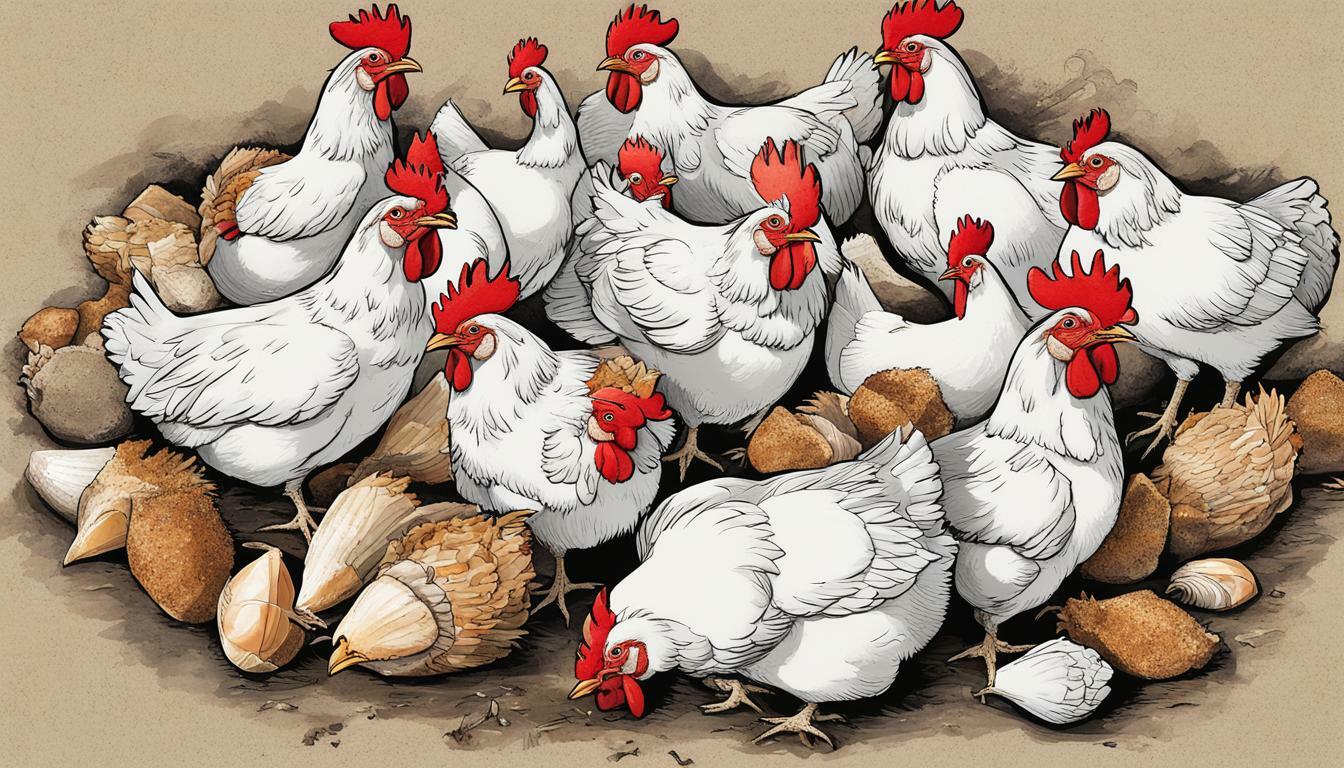Can Chickens Eat Lemongrass? Find Out the Surprising Answer

Table of content:
- Is Lemongrass Safe for Chickens?
- What Are the Benefits of Feeding Lemongrass to Chickens?
- How Much Lemongrass Can Chickens Eat?
- Should You Chop or Mince Lemongrass for Chickens?
- Can You Grow Lemongrass for Chickens?
- When Should You Introduce Lemongrass to Baby Chicks?
- What Part of the Lemongrass Plant Can Chickens Eat?
- Do Chickens Like the Taste of Lemongrass?
- Does Lemongrass Help With Chicken Health Issues?
- Are There Any Risks to Feeding Chickens Lemongrass?
- Final Thoughts
Lemongrass is an aromatic, lemon-scented herb that offers many potential health benefits for chickens. But is it safe for chickens to eat? And how much should you feed? In this article, we’ll cover everything you need to know about feeding lemongrass to chickens.
Is Lemongrass Safe for Chickens?
The good news is yes, lemongrass is safe for chickens to eat! Both the leaves and stalks of lemongrass contain nutrients and compounds that can promote chicken health.
Lemongrass is non-toxic for chickens. So they can safely eat moderate amounts of this zesty, citrus herb.
Some key benefits of lemongrass for chickens include:
- Antioxidants – Contains antioxidants that support immune health
- Phytonutrients – Provides phytonutrients that reduce inflammation
- Aromatics – Has aromatic oils that repel insects and parasites
As long as you introduce it slowly and don’t overfeed, lemongrass can be a healthy addition to any chicken’s diet.
What Are the Benefits of Feeding Lemongrass to Chickens?
Beyond being safe, lemongrass has many specific benefits that make it a great supplement for chicken nutrition and health:
- Supports respiratory health – The antioxidants in lemongrass may help strengthen chickens’ respiratory systems and air sacs. This promotes better breathing and reduces the risks of issues like infectious bronchitis.
- Aids digestion – Lemongrass can help stimulate digestion in chickens. The aromatic compounds help increase bile production and enzymes that break down food. This helps improve gut health and nutrient absorption.
- Anti-parasitic – Lemongrass contains geraniol, an aromatic compound that helps repel parasites like mites, lice, and worms. This protects chickens from parasitic infections.
- Anti-inflammatory – The phytonutrients in lemongrass have anti-inflammatory effects that can help reduce swelling and discomfort caused by injuries, molting, infections, and other issues.
- Insect/bug repellant – The strong citrus scent of lemongrass drives away insects and pests. It’s a natural way to keep flies, mosquitoes, and other bugs out of the coop and away from your flock.
- Strengthens immunity – Lemongrass supports the immune system through its antioxidant content. This helps chickens resist and recover from illnesses faster.
- Reduces heat stress – Some studies show lemongrass may help regulate body temperature. This can lessen the impacts of heat stress during hot summer months.
So by providing key nutrients, compounds, and aromatics, lemongrass gives chickens’ overall health a healthy boost in natural ways.
How Much Lemongrass Can Chickens Eat?
While moderate amounts of lemongrass are very beneficial, chickens should not eat unlimited quantities.
A good general rule is to feed chickens no more than 1-2 ounces (30-60g) of fresh lemongrass per chicken per day.
You can offer lemongrass to chickens free-choice, a few times per week. But be careful not to overdo it.
Signs of overfeeding lemongrass may include:
- Loose droppings
- Decreased appetite
- Lethargy
- Diarrhea
If chickens overindulge and show these symptoms, simply withdraw the lemongrass for a few days. Their digestive systems should return to normal soon after.
Moderation is key when incorporating new treats and herbs like lemongrass into a chicken’s diet. Monitor how your flock responds and adjust amounts accordingly.
Should You Chop or Mince Lemongrass for Chickens?
Before feeding lemongrass, it’s best to chop or mince it into small pieces first. This makes it easier for chickens to digest.
The woody, fibrous stalks of lemongrass plants can be tough to break down. Cutting lemongrass into smaller bits allows chickens’ digestive enzymes better access to extract the beneficial nutrients and compounds.
You can use kitchen shears or a sharp knife to chop lemongrass into quarter inch (or smaller) pieces for chickens. Both the lower stalk portions and leafy tops can be fed.
Chopped lemongrass mixes well into:
- Scratch grains
- Supplements
- Herb gardens
- Chicken treats
Offer lemongrass pieces directly inside the run or coop so all chickens in the flock can enjoy this zesty treat!
Can You Grow Lemongrass for Chickens?
Yes! Growing your own lemongrass is a great way to provide chickens with a fresh, free source of this beneficial herb all season long.
Lemongrass is a tropical, water-loving plant. It thrives in warm temperatures (70°F+) and moist soil.
Fortunately, lemongrass grows well in containers too. This allows you to cultivate it even in cooler climates or gardens with poor drainage.
Follow these tips for successfully growing lemongrass for your flock:
- Plant in a large pot or planter box once all danger of frost has passed. Choose a 12-inch or larger container with drainage holes.
- Use fast draining potting mix, and add sand or perlite to improve drainage. Lemongrass hates soggy roots.
- Place container in full sun. Lemongrass needs at least 6 hours of direct sunlight per day.
- Water frequently, keeping soil consistently moist but not soggy. Leaves may brown and fray if lemongrass dries out.
- Harvest stalks as needed by cutting them near the soil line. New shoots will continue to grow all season long.
- Fertilize monthly with a balanced organic fertilizer to replenish nutrients.
- Overwinter lemongrass indoors in a sunny window. It goes dormant once temperatures cool.
A potted lemongrass plant or two can provide an easy, long-lasting supply of this citrus herb for your backyard chickens!
When Should You Introduce Lemongrass to Baby Chicks?
Baby chicks under 4 weeks old should not eat lemongrass. Their digestive systems are too immature to handle this fibrous, aromatic herb.
A good time to introduce lemongrass is when chicks reach 5-6 weeks old and have transitioned to a mature diet. At this stage, their digestive enzymes and gut flora are developed enough to properly digest tougher herbs and plants.
Follow these tips for safely introducing lemongrass to young chicks:
- Start with just a few small pieces chopped finely. Observe to see if chicks seem to accept and tolerate it.
- Mix lemongrass pieces into chick starter feed to mask the flavor.
- Increase portion sizes slowly over 2-3 weeks.
- Withhold lemongrass if chicks show signs of digestive upset.
- Wait until 12-14 weeks old to feed larger lemongrass amounts.
Take it slow when adding new foods like lemongrass to baby chickens’ diet. Their sensitive young digestive systems need time to adjust.
What Part of the Lemongrass Plant Can Chickens Eat?
Chickens can safely eat all parts of the lemongrass plant, including:
- Leaves – The long, slender, green leaves contain antioxidants, phytonutrients, and aromatic oils.
- Stalks – The tough, fibrous stalks also provide nutrients. Just chop them finely first.
- Flowers – The small lemongrass flowers provide nectar as a tasty treat.
The most common parts fed are the lower stalks and leaf portions. The woody tops and root ends can be very tough and are difficult for chickens to digest, so avoid overfeeding them.
All parts of the lemongrass plant contribute to its antioxidant, anti-inflammatory, and antimicrobial properties that benefit chicken health. Feel free to use both the stalks and leaves when harvesting lemongrass for your flock.
Do Chickens Like the Taste of Lemongrass?
In general, yes chickens enjoy the bright, zesty flavor of lemongrass!
The strong lemon and citrus notes in lemongrass make it smell and taste quite appealing to chickens.
To encourage your flock to try lemongrass, start by mixing small amounts into their regular chicken feed rations or scratch grains. Once they acquire the taste, you can offer lemongrass on its own.
The aromatic compounds in lemongrass also help stimulate chickens’ appetite. This zesty herb acts as a natural hunger stimulant.
Some chickens may not take to lemongrass right away. But over time, most chickens relish the chance to snack on this fresh, lemon-scented herb from the garden. It provides flavor and nutritional variety.
Does Lemongrass Help With Chicken Health Issues?
Yes, lemongrass can help prevent and treat some common health conditions in backyard chickens due to its medicinal properties:
Respiratory illnesses – Lemongrass supports respiratory health and can help relieve symptoms of illnesses like infectious bronchitis. Its antioxidants strengthen the immune system against respiratory infections.
Parasites – Lemongrass repels external parasites like mites and lice. Its antimicrobial actions also kill internal parasites like worms and protozoa. Regularly feeding lemongrass helps protect chickens from parasitic infestations.
Digestive problems – Lemongrass aids digestion and can relieve issues like diarrhea, constipation, and impacted crops. It helps normalize gut motility and nutrient absorption. Its aromatics also reduce gut inflammation.
Egg bound hens – Lemongrass has muscle relaxant effects that may help relax the vent and facilitate egg passage for hens suffering from egg binding or impacted vents.
Thanks to its medicinal properties, lemongrass is an excellent natural supplement for supporting overall chicken health and treating specific conditions. Its antibacterial, anti-inflammatory, and antiparasitic actions benefit chickens in many ways.
Are There Any Risks to Feeding Chickens Lemongrass?
There are very few risks associated with feeding lemongrass to chickens in moderation. Some important considerations include:
- Overfeeding – Too much lemongrass can cause loose droppings, appetite loss, or digestive upset. Follow recommended feeding amounts.
- Allergies – A very small number of chickens may be allergic or intolerant to lemongrass. Discontinue use if any signs of allergic reaction.
- Drug interactions – Lemongrass has antimicrobial properties. Consult your vet before feeding lemongrass to chickens on antibiotics or other medications, as interactions are possible.
- Sour crop – The high moisture content of fresh lemongrass can potentially contribute to sour crops if chickens eat too much. Chop lemongrass finely and mix with dry feed.
- Vent impactions – The fibrous nature of lemongrass may possibly increase chances of vent impactions. Avoid overfeeding the base stalks to sensitive chickens.
But in general, lemongrass is a safe supplement for chickens when fed in moderation. The benefits far outweigh the minor potential risks.
Final Thoughts
Lemongrass makes a healthy, natural addition to any backyard flock’s diet. It provides antioxidants, phytonutrients, insect-repelling aromatics, and anti-parasitic compounds that benefit chicken health in many ways.
Chickens enjoy the bright, citrusy flavor of this tropical herb. When fed in moderation, lemongrass can support respiratory health, strengthen immunity, aid digestion, and help treat common health conditions. A potted lemongrass plant provides chickens with a convenient source of this beneficial herb all season long.
Next time you’re looking for new ways to naturally supplement your flock’s diet, consider growing some lemongrass. Both you and your chickens will love having this zesty, lemon-scented herb on hand.
Welcome. I’m Adreena Shanum, the proud owner of this website, and I am incredibly passionate about animals, especially poultry. I founded adreenapets.com as a labor of love, stemming from my desire to share my knowledge and experiences with poultry enthusiasts worldwide.




